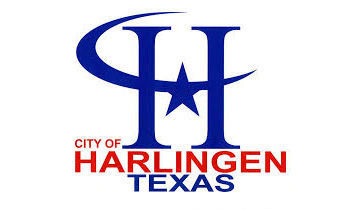HARLINGEN — For 14 years, local leaders have worked to keep a cap on the city’s property tax rate.
Tomorrow, city commissioners are expected to consider proposing a four-cent tax increase which would boost the tax rate from 58 cents to 63 cents per $100 valuation.
Commissioners are also set to call public hearings for Aug. 7 and Aug. 21 to give residents a chance to speak up about the proposal.
“It’s not something we want to do,” Mayor Chris Boswell said yesterday, referring to raising property taxes. “It’s something we’re not taking lightly by any means.”
Last week, City Manager Dan Serna proposed a general fund budget that would come with a four-cent tax increase used to balance $45.1 million in revenues with $46.5 million in expenditures.
The general fund budget would come with a $17.5 million cash reserve capable of funding city operations for about 135 days, more than the recommended 120 days.
The proposed tax increase, which would generate $1.3 million, would fund “one-time” capital expenditures including $390,000 for nine police cars, $128,166 to fund fire department equipment including 12 air packs, $87,000 for a bucket truck, $320,000 for an emergency generator for City Hall and $163,800 to fund the public library’s elevator control.
Yesterday, Boswell said officials are not planning to pull money from cash reserves to forestall a possible tax increase.
During the upcoming fiscal year, he said, officials are planning to dip into cash reserves for $2 million to $3 million to fund the city’s share of an anticipated $10 million to $12 million grant aimed at drainage improvements.
“We know we’re going to use some of our fund balance,” Boswell said.
Boswell said officials believe the city will land the grant.
“We’re hopeful we’ll get positive response for these projects,” referring to prospects of landing the grant.”
Boswell also said officials are preparing to face a new state law they expect will lead to the city’s loss of about $1 million a year after Senate Bill 2 takes effect next January.
At City Hall, City Manager Dan Serna projects the city would lose about $4.3 million five years starting after the law kicks in during fiscal year 2020-2021.
“It could really constrict our flexibility moving forward,” Boswell said.
Senate Bill 2, passed this year, would require cities and other taxing entities to hold elections to allow voters to decide if those governments could raise tax revenue by 3.5 percent more than they collected the previous year.
Now, the state allows these taxing entities to collect as much as 8 percent more in annual tax revenue before holding such elections.
Boswell said the proposed tax increase would help the city offset projected losses in sales tax revenue.
“Increasing by four cents will build some cushion,” he said, referring to the proposed tax increase.
As officials prepare for Senate Bill 2 to kick in, they also continue to face rising employee health care insurance premiums and public safety costs.
In recent years, Boswell said, the city’s budgets have faced annual increases of more than 3 percent in expenditures aimed at public safety.





